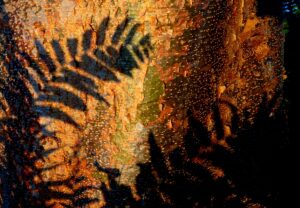Excerpted from the novel by SHADY LEWIS
Translated from the Arabic by KATHARINE HALLS
Excerpt appears below in English. To read the original Arabic, click here.
Translator’s note
One of the things I like about Shady Lewis’s writing—and the reason I’m so glad it’s appearing in The Common of all journals—is that it’s global in its imagination, and yet deeply rooted in specific places and experiences. The place is Cairo, and the experiences are those of Coptic Christians and young people on the left. From this vantage point, Lewis offers a biting critique of Egyptian society, but one that’s filled with affection for its people. But Lewis has also lived in the UK for a long time, and in the novel excerpted here, On the Greenwich Line, he turns the same critical yet compassionate gaze on its capital city. His setting is a run-down East London borough, and his characters an unlikely cast of desperate migrants and frustrated local government employees. The premise is simple: as a favor to his friend, the protagonist finds himself roped into organizing the funeral of a young Syrian refugee named Ghiyath. The protagonist himself is an Egyptian immigrant who’s lived in London for many years and works as a housing officer for the local council, so he knows all about the absurdities of racism, austerity, and bureaucracy in the UK; he just doesn’t think they concern him, until the fateful day his life collides with Ghiyath’s, and he’s forced to acknowledge just how much he has in common with those who’ve fallen through the cracks. The result is a painful interrogation of how a decade of Conservative austerity has hollowed British society out from the inside, and a devastating portrayal of the migrants and outcasts who are forced to live permanently on the brink of destitution. It’s also a profoundly human story about London and its many lost souls, and for a reader like me who loves the city, Lewis’s writing about London, in Arabic, feels both familiar and arresting. Translating it into English, I hope both to honor its intimate, quotidian London-ness, and to preserve the outsider gaze which enables it to offer up such striking observations as the protagonist’s musing on the “Mosque of the White Chapel”—his Arabic rendition of Whitechapel Mosque. It does us good to return to old sights with fresh eyes.
—Katharine Halls













